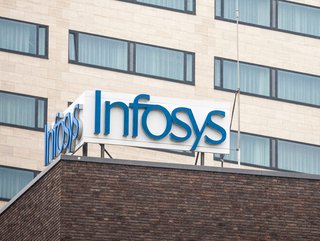Infosys’ Global AI Head on looking past the hype of gen AI

Speaking with AI Magazine, Balakrishna D.R, Executive Vice President, Global Head of AI and Automation and ECS at Infosys, discusses the company’s Topaz AI suite and how businesses can leverage the benefits of generative AI.
Please introduce yourself and tell us about your role?
My name is Balakrishna D.R – though I’m often known to others as Bali – and I am an Executive Vice President, Global Head AI and Automation and ECS at Infosys. I have been with Infosys for more than three decades, delivering large digital transformation programs for Fortune 500 clients. I have spearheaded the creation of new verticals in Infosys, opened new markets and expanded businesses across industries and service lines leveraging emerging technologies, spanning all major global markets leading to industry leading growth.
In my current role, I am responsible for developing all aspects of Infosys’s AI strategy, leading all AI-first transformations within Infosys, including responsible AI initiatives, embedding matured AI solutions into Infosys offerings, and helping our customers solve business challenges by leveraging industry leading AI solutions.
How can businesses look beyond the hype and leverage the benefits of generative AI?
Businesses should adopt a first principles approach and look holistically at what business challenges they are trying to solve. Then, they should try to assess what technical intervention could help them achieve that outcome without compromising on other business considerations like return on investment, customer satisfaction, compliance aspects, disrupting other aspects of the value chain. If because of that exercise, they find that generative AI can help them realistically achieve those outcomes, then only they should proceed with the next steps. This would involve building a phased roadmap comprising of proof of concepts, pilots and subsequent production deployments. At each stage, they need to reassess the outcomes and be agile enough to switch to alternatives that can deliver better value.
At no point should their objective be to force fit generative AI, and businesses should consider a maturity assessment to see how the technology can be integrated into their overall IT roadmap without disrupting the existing landscape. Firms must continuously monitor and evaluate the performance of the generative AI models they are utilising. Generative AI models are not static; they must be monitored and evaluated regularly to ensure they meet business needs. By continuously assessing their accuracy, efficiency and effectiveness, businesses can point out areas for improvement and make informed decisions on refining the models for optimal outcomes.
For example, Infosys’s Applied AI strategy has an extensive discovery phase, which looks holistically at all the major functions and core business areas. We embark on various exploratory activities for identifying potential opportunities for transformation, and also help our customers prioritise them using the Pareto principle that is identifying which are the few potential use-cases that are going to deliver the most impact. Coupled with our domain expertise and technical acumen, we assess, discover, and quantify the disruptive potential of each of the opportunities.
Tell us about how Infosys’ Topaz AI suite and how it accelerates business value?
Infosys Topaz is an AI-first set of services, solutions and platforms using generative AI technologies. It converges Infosys Cobalt cloud, data analytics and AI to drive growth and deliver cognitive solutions. With over 12,000 AI assets and pre-trained AI models, it fosters innovation and fast-tracks new ideas. By democratising data and intelligence, Topaz builds connected ecosystems, enabling participants to create disruptive business models and new revenue streams. It also unlocks efficiencies at scale through smart tools, platforms and autonomous software engineering. The suite amplifies the potential of people and clients, supporting efficiency programs and securing future growth by catering to businesses across industries and geographies, empowering them with AI-powered solutions and predictive analytics.
Why is it so important to implement a ‘responsible by design’ approach when it comes to AI?
Responsible AI interventions will not work in silo or as an add-on to the main initiative, it is imperative that we embed responsible AI guardrails and best practices across all stages of AI lifecycle, right from stages like data preparation, to model engineering, optimisation, validation, and deployment. Proper accountability for audits, documentation, model risk management, adversarial testing, installing checks for data privacy and human in the loop, monitoring for oversight and using technical guardrails across all stages is needed. Otherwise, lapses might stay undetected and cause reputational damage later on.
A strong “responsible by design” framework can effectively take care of considerations like bias and fairness, safety and harm prevention, explainability, privacy and more. At Infosys, we have technical systems, frameworks, and tools for ensuring ethical, bias-free, explainable AI development, deployment, and use. Particularly in the context of generative AI, there are multiple concerns such as privacy violations, toxicity, hallucination, AI security, and more. Businesses should build technical and policy-driven guardrails for a variety of AI systems and use-cases, along with our partner ecosystem for ensuring fair, explainable, and secure AI systems.
How can employees be trained and upskilled to use AI technologies without compromising on issues like ethics, trust and privacy?
All training initiatives should be rooted in few fundamental principles:
- Continuous AI Ethics and Regulatory training: Employees need to understand the ethical implications of AI like privacy, fairness, transparency, and accountability, regulatory laws and regulations like the upcoming EU act, GDPR guidelines, as well as on existing organisational policies. They should also be aware that generative AI is not the panacea, and it has its limitations.
- Training on using technical guardrails: Employees need to be trained to use tools and platforms for responsible AI including tools and techniques for handling and protecting sensitive data, use encryption techniques, and implement privacy-preserving practices like anonymisation and data minimisation. They should be enabled in responsible AI tools for bias detection and mitigation, AI security tools for inference attacks, prompt injection attacks and best practices.
- Collaboration with academia and industry bodies: AI technologies evolve rapidly, and ethical considerations may change over time. Training should also encourage employees to actively engage in AI ethics communities and forums on emerging ethical frameworks and help in shaping industry best practices.
- Cross-functional Involvement: Upskilling opportunities should also revolve around actively involving employees in the AI development process to incorporate their diverse perspectives, thus ensuring a balanced approach. Encouraging cross-functional teams to work together, including individuals from legal, compliance, and ethics departments, to assess and address ethical concerns throughout the development lifecycle helps in cross-learning on these crucial issues.
What are your thoughts on the future of generative AI and its capabilities?
Generative AI technology is evolving at an accelerated rate and new use cases are coming to market and new ecosystems are slowly being built around it. There are innumerable possibilities and opportunities in all industries. Some of them are content creation for marketing and entertainment industry, market research, product design generation, idea generation for new products, specialised AI assistants for customer service, enhancing knowledge gathering and search tools, code generation, synthetic data generation, generating simulation like digital twins, drug discovery and as an enabler for AR/VR technologies. It would be interesting to see how the future of generative AI would unfold, but I would like to highlight two main aspects where it will have the most impact:
Amplification of Human Capital: Generative AI will augment human capabilities and empower employees to take on more challenging tasks and improve their core competencies. One of the ways we see that happening is through the rise of powerful AI assistants, working alongside humans and adding value in each task. This can involve taking notes in a meeting, building presentations, and creating manuals. At Infosys, we’ve helped a large investment banking company by building a generative AI assistant that enables them to effectively advise their customers based on information and intelligence from thousands of documents. This resulted in better investment strategies and financial plans for their customers and reduced time spent on research.
Rise of “AI-first” Enterprises: Generative AI will be embedded in all the core service offerings of an enterprise as well as across functions like product development, sales and marketing, contact centers, supply chain processes and more. It will also augment all stages of software development, like in application development for developing quality code, migrating legacy code, building process documentation from legacy code, and debugging code etc. Generative AI-integrated workflows will exponentially improve response times, flexibility, reduce risks, promote faster experimentation, and reduce time to market.
******
For more insights into the world of AI - check out the latest edition of AI Magazine and be sure to follow us on LinkedIn & Twitter.
Other magazines that may be of interest - Technology Magazine | Cyber Magazine.
Please also check out our upcoming event - Cloud and 5G LIVE on October 11 and 12 2023.
******
BizClik is a global provider of B2B digital media platforms that cover Executive Communities for CEOs, CFOs, CMOs, Sustainability leaders, Procurement & Supply Chain leaders, Technology & AI leaders, Cyber leaders, FinTech & InsurTech leaders as well as covering industries such as Manufacturing, Mining, Energy, EV, Construction, Healthcare and Food.
BizClik – based in London, Dubai, and New York – offers services such as content creation, advertising & sponsorship solutions, webinars & events.






